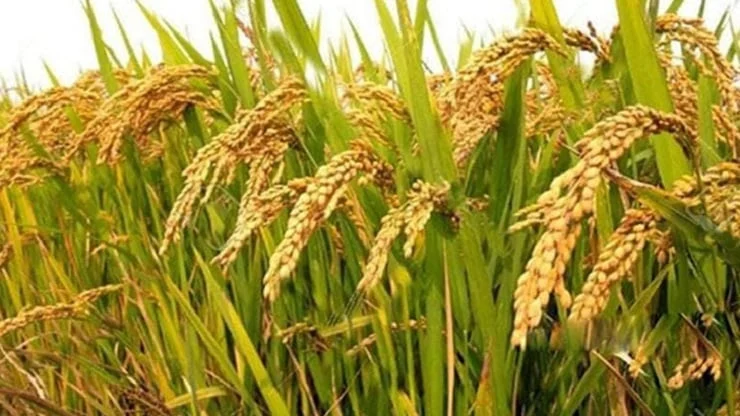News Flash

DINAJPUR, May 20, 2025 (BSS) – Hajee Mohammad Danesh Science and Technology University (HSTU) has developed chemical and pesticide-free rice aiming to boost rice production in the country.
"A research team led by Associate Professor Dr. Azizul Haque of the Biochemistry and Molecular Biology Department of HSTU has been able to invent chemical and pesticide-free rice,” said Md. Khademul Islam, Director of the Public Relations Department of HSTU.
Professor Dr. Azizul Haque said that this success was achieved by conducting research on a total of 6 varieties of rice including Bri-28, Bri-29, Bri-92, Bri-34 and Jirashail.
They are working to double the yield by reducing the use of chemicals and pesticides by using plant endophytic bacteria. The research team has already achieved success in cultivating brinjal and tomato through this method in agriculture.
Farmers and researchers say that since the conventional Bri-28 (Boro) and Bri-34 (Amon) varieties of rice are more susceptible to blast and other diseases, pesticides have to be applied to these rice varieties for about four to six times.
Even 15 days before the rice is harvested, high levels of poison have to be applied to prevent blast.
This reduces rice production by about 20 to 30 percent and disrupts the nutrient fortification of rice. In addition, the production cost of farmers is increasing several times every year due to the use of urea fertilizer. This is also affecting the country's economy by increasing the government's subsidy and gas consumption in the production of this fertilizer.
To solve this problem, researchers have started cultivating rice using biofertilizers by reducing the use of urea and chemical pesticides.
Researchers said that endophytic bacteria, which accelerate the growth of rice plants, collect additional nitrogen from the atmosphere by increasing the roots, trunk, branches and shoots of the plant. As a result, it is possible to reduce the use of urea fertilizer by 50 to 70 percent.
The researchers said that in this study, a mixture of some endophytic bacteria has been created, which produce auxin hormone, ACC de-aminase enzyme. They are also capable of stabilizing nitrogen from the atmosphere (fixation). The application of these bacteria has increased the yield of Bri-28 rice by an average of about 50 to 55 percent. Along with this, the strength of the rice straw has doubled due to the increase in cellulose and is more robust and healthy.
The research team said that by reducing urea fertilizer by 50 percent through field trials with farmers and applying poison only once in the first month of rice planting, rice production has increased by 50 to 55 percent.
Lead researcher Dr. Azizul Haque also said, "We are working with three main goals in mind. These are, reducing dependence on chemicals and pesticides, increasing yield and improving the quality of rice. The use of chemicals and pesticides has been reduced through the use of bacteria, which is safe for human health. We have also been able to increase the yield of Bri-34 variety rice by 25 to 30 percent. The quality of the rice obtained through the research has improved a lot.This reduces the amount of lice in the rice and provides sufficient rice in the rice ears. The rice becomes suitable for harvesting before the scheduled time, which is a blessing for the people of the haor region.”
Not only the bacteria, with which the biofertilizer has been made, but the research team has also invented new techniques and technologies for producing that bacteria.
As a result, the complexity of applying bacteria on a large scale in agricultural land has now been reduced to a great extent.
Under the leadership of Dr. Azizul, students of the Department of Mechanical Engineering Tanvir, Shahriar, Mehedi and Rokon were involved in this research.
Through this, farmers can easily produce bacteria at their homes and apply it to their land at very low cost.
Dr. Azizul Haque’s research has been financially supported by the University’s Institute of Research and Training (IRT).
Recently, IRT Director Professor Dr. S. M. Harun-ur-Rashid, Dean of the Faculty of Agriculture Professor Dr. Bidhan Chandra Halder, Associate Researcher Dr. Yasin Pradhan and Professor Dr. Shah Moinur Rahman visited the research field directly at the farmer level with the research team.
At that time, IRT Director Professor Dr. S. M. Harun-ur-Rashid said, "We were very satisfied with the direct field visit. Compared with the surrounding land, we saw that the yield of the land where farmers have applied bacteria is much higher than the land where other common fertilizers and pesticides are used. We have also received a very satisfactory response from the farmers. Next year, more farmers will be interested in cultivating rice using this technology."